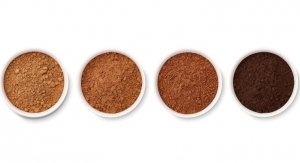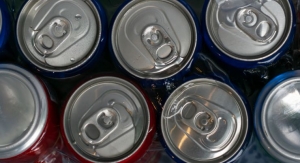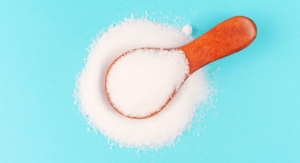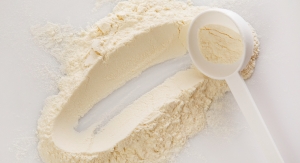03.07.17
How can prebiotics help children suffering from the effects of obesity and overweight? A recent study showed that a simple daily addition of a particular prebiotic fiber prior to dinner may help children feel satiety and eat less.
The study was published in the American Journal of Clinical Nutrition on Feb. 22, 2017. What sets it apart is that few such studies have ever been conducted with children to examine the effects of prebiotic supplementation on appetite control and energy intake.
The effects of obesity are pervasive in Western-style fast-food culture. The effects on a child of being overweight or obese are enormous, including the threat of diabetes. A child's digestion, immune system, and even self-esteem, all suffer.
Prebiotics feed the good bacteria in the child's colon and create a feeling of fullness and reduction in energy intake (calories). The specific proprietary supplement formula used in this successful study is oligofructose-enriched inulin, OEI, sachets/stick packs by Prebiotin.
"The results of this dietary intervention study highlight the potential of prebiotic supplementation in the management of pediatric overweight and obesity, with significant improvements in sensations of appetite and marked reductions in energy intake in children 11-12 years of age," according to researchers led by Professor Raylene Reimer at the University of Calgary in Canada.
The study conducted was a randomized, double-blind, placebo-controlled trial involving 42 overweight and obese boys and girls between the ages of 7 and 12. They were randomly assigned to receive 8 grams per day of oligofructose-enriched inulin or a maltodextrin placebo for 16 weeks.
Compared with the placebo, in the age group of 11-12 year olds, their calorie consumption decreased significantly by approximately 113 kcal. The placebo group actually increased energy intake by 137 kcal.
Important as well, was the finding that ghrelin, the satiety hormone which signals us to stop eating, was increased by 28% in all of the children in the prebiotic group after 16 weeks compared to baseline levels. The placebo group levels of ghrelin only increased by 8%.
These are profound and significant results. According to Prebiotin CEO Ron Walborn Jr., this aligns with the company's vision, which is "a world free of gut imbalance-caused diseases and conditions due to the lack of prebiotic fiber in our diets," most importantly, when it involves children.
Additionally, according to statistics quoted by the National League of Cities, the cost of obesity to society in general is also economic.
"The estimated annual health care costs of obesity-related illness are a staggering $190.2 billion or nearly 21% of annual medical spending in the United States. Childhood obesity alone is responsible for $14 billion in direct medical costs. Obesity-related medical costs in general are expected to rise significantly, especially because today's obese children are likely to become tomorrow's obese adults. If obesity rates were to remain at 2010 levels, the projected savings for medical expenditures would be $549.5 billion over the next two decades."
Prebiotin is currently being used in seven different disease category studies, including two with the NIH, one with Health Canada, and several other institutions.
The study was published in the American Journal of Clinical Nutrition on Feb. 22, 2017. What sets it apart is that few such studies have ever been conducted with children to examine the effects of prebiotic supplementation on appetite control and energy intake.
The effects of obesity are pervasive in Western-style fast-food culture. The effects on a child of being overweight or obese are enormous, including the threat of diabetes. A child's digestion, immune system, and even self-esteem, all suffer.
Prebiotics feed the good bacteria in the child's colon and create a feeling of fullness and reduction in energy intake (calories). The specific proprietary supplement formula used in this successful study is oligofructose-enriched inulin, OEI, sachets/stick packs by Prebiotin.
"The results of this dietary intervention study highlight the potential of prebiotic supplementation in the management of pediatric overweight and obesity, with significant improvements in sensations of appetite and marked reductions in energy intake in children 11-12 years of age," according to researchers led by Professor Raylene Reimer at the University of Calgary in Canada.
The study conducted was a randomized, double-blind, placebo-controlled trial involving 42 overweight and obese boys and girls between the ages of 7 and 12. They were randomly assigned to receive 8 grams per day of oligofructose-enriched inulin or a maltodextrin placebo for 16 weeks.
Compared with the placebo, in the age group of 11-12 year olds, their calorie consumption decreased significantly by approximately 113 kcal. The placebo group actually increased energy intake by 137 kcal.
Important as well, was the finding that ghrelin, the satiety hormone which signals us to stop eating, was increased by 28% in all of the children in the prebiotic group after 16 weeks compared to baseline levels. The placebo group levels of ghrelin only increased by 8%.
These are profound and significant results. According to Prebiotin CEO Ron Walborn Jr., this aligns with the company's vision, which is "a world free of gut imbalance-caused diseases and conditions due to the lack of prebiotic fiber in our diets," most importantly, when it involves children.
Additionally, according to statistics quoted by the National League of Cities, the cost of obesity to society in general is also economic.
"The estimated annual health care costs of obesity-related illness are a staggering $190.2 billion or nearly 21% of annual medical spending in the United States. Childhood obesity alone is responsible for $14 billion in direct medical costs. Obesity-related medical costs in general are expected to rise significantly, especially because today's obese children are likely to become tomorrow's obese adults. If obesity rates were to remain at 2010 levels, the projected savings for medical expenditures would be $549.5 billion over the next two decades."
Prebiotin is currently being used in seven different disease category studies, including two with the NIH, one with Health Canada, and several other institutions.


























